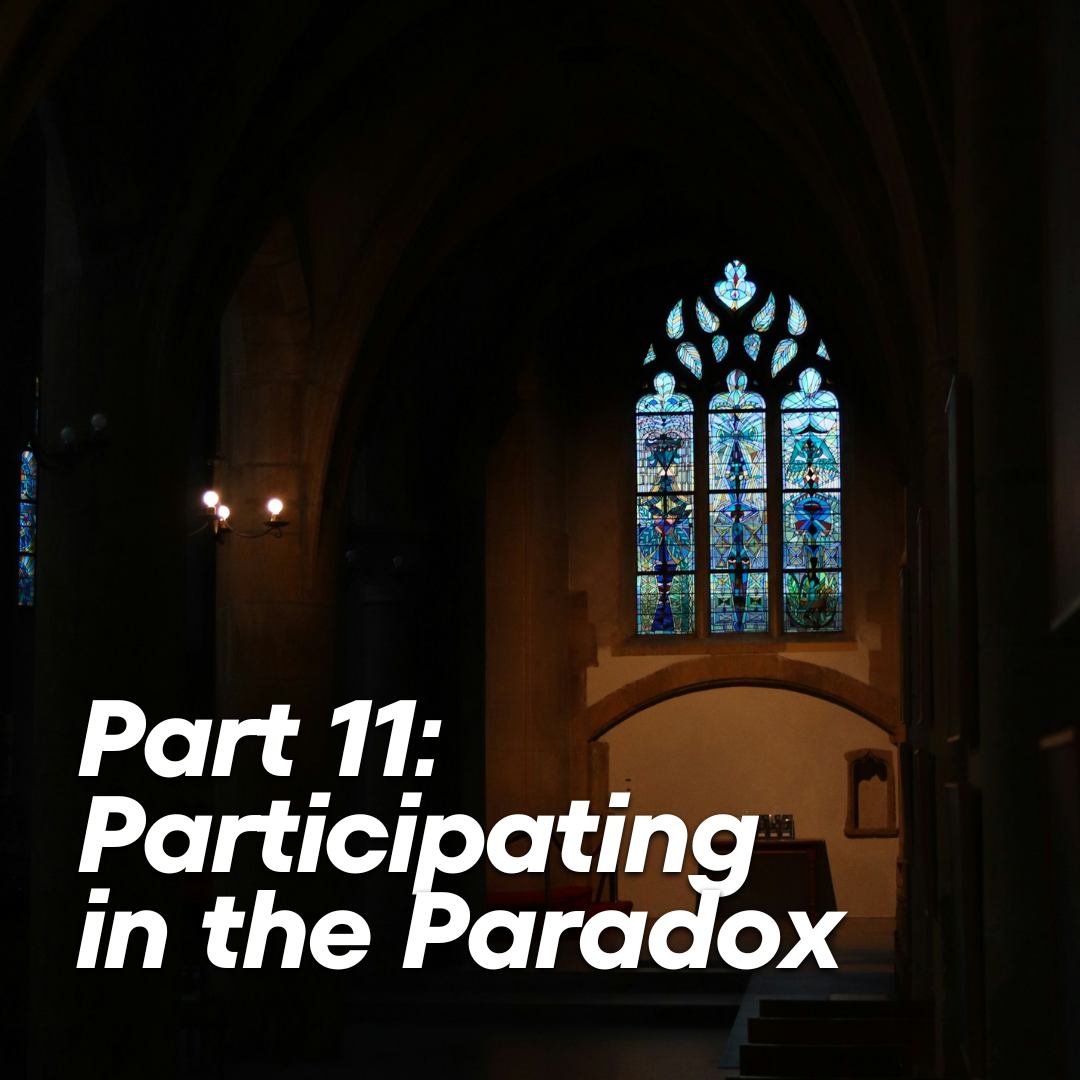Part 11: Participating in the Paradox

It’s so much easier to embrace absolutes than to suffer reality.
— Anne Lemott
Everything begins in mysticism and ends in politics.
— Charles Péguy
The best political, social, and spiritual work we can do is withdraw the projection of our shadow onto others.
— Carl Jung
I laugh when I hear that the fish in the water is thirsty. You don’t grasp the fact that what is most alive of all is inside your own house; and so you walk from one holy city to the next with a confused look! Kabir will tell you the truth: go wherever you like, to Calcutta or Tibet; if you can’t find where your soul is hidden, for you the world will never be real!
— Kabir





